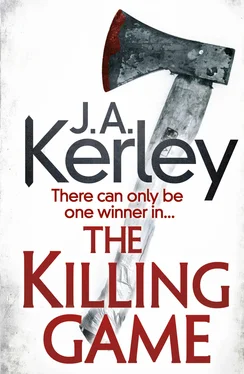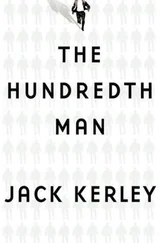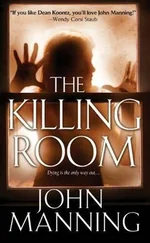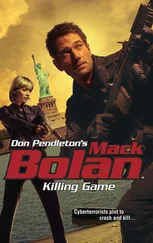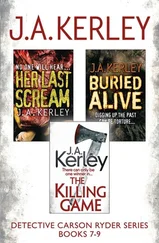Dr Sonia Szekely stared across her paper-strewn desk at her questioner: blonde, blue-eyed, skin the hue of a spring peach. The reporter wore a loose and flippy miniskirt, tank top, pink running shoes over short white socks, and represented the newspaper of a local university. I’ve got plenty to add , Szekely considered saying. If you’ve got the stomach for it, which I doubt . Instead, Szekely looked down at her age-wrinkled hands, fought her need to light a cigarette, and regarded the reporter with bemusement.
“How old are you, my dear?” Szekely asked. Her eyes wandered past the reporter to her overloaded bookshelves holding such titles as Ceauşescu’s Orphanages: a History of Hell , The Pathology of Fetal Alcohol Syndrome and Psychic Damage in Early Childhood . Other titles were in Romanian.
“I’m twenty, Doctor. Almost twenty-one. Why?”
“The worst of what I’m telling you happened before you were born. The wretched Ceaușescu regime in Romania, the plight of the orphans, the decades of horror and human wreckage—”
“I got that, Doctor. About how Cacesku—”
“ Ceaușescu ,” Szekely corrected. “Nicolae Ceaușescu .”
“Sure,” the reporter nodded, flipping open her notepad to glance inside. “ Ceaușescu wanted to grow the country’s workforce so he outlawed birth control and demanded large families, but the country was so desperately poor the children couldn’t be cared for and were placed in state-run orphanages.” The reporter wrinkled her button nose. “Nasty places.”
“Yes,” Szekely nodded, thinking, They were more than nasty, miss, they were hell on earth, a dark bloom of evil that poisons to this day .
“But what does my age have to do with that nasty moment in history, Doctor?”
Szekely felt her legs propel her to standing. Heard her voice grow loud.
“It’s not history!”
The reporter’s eyes went wide. Szekely waved her hand in apology and sat down again. Took a deep breath.
“Forgive me. My work means reliving events of that time almost daily. Plus I’m a bit fearful you’ll view these orphanages as having no more hand in our present lives than a faded newsreel from World War II. Yet they’re with us today. That’s the real story.”
The young woman frowned. “But if the Romanian orphanages have been changed and the children saved—”
“Physical salvation differs from psychic salvation. Physically, the children may have been removed from conditions of horror, but in many cases the horrors have not been removed from the children.”
“Sure, Doctor. Some poor kids probably have nightmares and things. I know I would if I’d started life like that.”
Szekely began to speak but closed her mouth. The intern reporter had most likely grown up in a bright home with a green lawn and white picket fence. Enjoyed large and healthy meals each day. Generations of adoring family would have surrounded and coddled her. Her bedroom held toys and dolls and lace curtains, cool in summer and warm in winter. She would have spoken at two years of age, walked at three, been in school at five. Interacting with her fellow humans would have been as natural as giggling.
Could the young woman in any way comprehend what happened to children who grew up in a box with no human interaction? Wallowing in their excretions? Feeding on slop, like hogs? Could the pretty young thing ever envision what some of these broken children became as they aged? It was an impossible task. Szekely knew; she had been studying such children for years and was herself still capable of awe at the horrors inflicted on the innocent.
Szekely looked into the eyes of the reporter, the woman’s pencil now tapping the notepad. She was impatient to get to her next assignment, something to do with a circus in town.
“I’ll see you to the door,” Szekely said, standing.
They strode along the hall to the reception area and out the door into a bright Gulf Coast morning. A faux-wood plaque on the side of the red-brick building said Coastways Behavioral Medicine, LLC. Beneath it were the names of several psychologists including Dr Sonia Szekely. Under Szekely’s banner a small sign proclaimed EEOSA.
The reporter thanked Szekely and promised to send a copy of the article when it was out, a month perhaps, or more, depending on how much of the paper would be devoted to sporting triumphs.
“Remember,” Szekely called to the woman’s departing back, “it’s not history. It lives with us today.”
But the reporter had already hidden inside her iPod. Szekely shook her head and watched the woman’s tiny silver Honda buzz from the lot. She was turning toward the building when her eyes fell across a familiar face in an automobile near the front of the lot. The face suddenly looked embarrassed and sank two inches, as if trying to hide below the dashboard.
Szekely waved and walked close. “Goodness, Ema, what are you doing here?”
“I, uh, was out driving and—”
“Needed to see me about something?”
The woman’s fingers drummed a nervous tattoo on the wheel. She started to speak, swallowed.
Szekely frowned. “Is anything wrong, Ema?”
“No … I mean, I uh … guess I just need some reassurance.” A sigh and a self-deprecating smile. “Like always, Doctor.”
Szekely grinned and nodded toward the offices. “I’ve got a group session at one, Ema. I’m yours until then. How about we grab some coffee and have a nice girl-to-girl chat? That should make things better.”
Night had fallen. Gregory sat in his living room surrounded by pages he’d gathered from Google, copies of everything available on Chief Baggs, mostly mentions in newspaper articles. The data focused on Baggs the cop, which was fine, but Gregory wanted more: what centered the entity known as Carleton T. Baggs? Where did he live? How did he live? What patterns could be discerned in his life?
If it’s seven fifteen on a Tuesday evening in summer , Gregory thought, making notes as he went, where, statistically, would I expect to find Carleton T. Baggs ?
When he’d pulled all the newspaper data on Baggs, Gregory frowned at the paucity of his file and considered where other information might be found. On a whim he tried YouTube, entering Baggs, Chief, Mobile, Alabama, Police .
Nothing.
But there was a hit on Mobile Alabama Police , one titled Det. Carson Ryder Lauded for Bravery . It had been logged into the system a couple days before by someone named Janet Wing. Gregory expanded the screen and hit Play.
He leaned back in his chair as the camera panned ranks of cops in a large room, some in uniform, others in street clothes, slack-jawed droolers getting taxpayer money to sit on their asses. The camera zoomed in on a slender, suited man standing from a front seat as someone called his name, Detective Carson Ryder . Ryder seemed about six feet tall, dark hair falling over his ears.
Gregory whispered “troglodyte” as Ryder approached the podium, his suit looking like it had cost fifty bucks with tie and shoes thrown in. The haircut was a ten-minute, ten-dollar job by a barber named Mort or Ralph. The knot of the Ryder-ape’s tie would have been more at home on a bowline.
But when the man forswore the step-stairs to the stage and took the half-meter jump as a natural extension of his stride, troglodyte suddenly didn’t fit. The man moved with a fluidity Gregory had noted in athletes, though nothing about him seemed particularly athletic save for shoulders a bit wider than the norm.
The man stepped into white light beside a podium. The camera panned left and Gregory’s breath froze in his throat. Baggs was the voice who had summoned Ryder to the podium. They touched palms in an imitation handshake and Baggs handed Ryder a framed certificate.
Читать дальше
